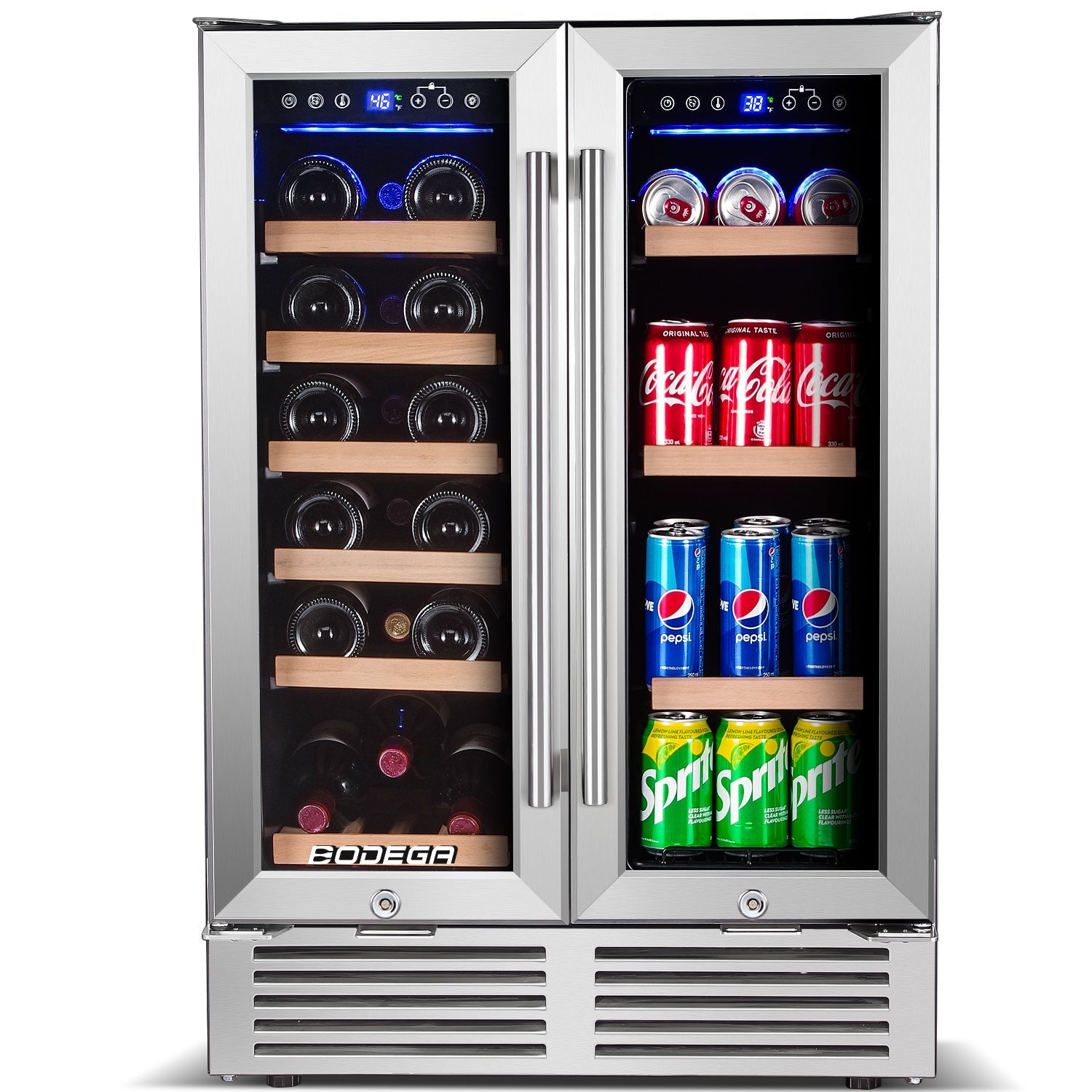Introduction
Wine coolers are popular appliances for keeping wines at the ideal temperature, ensuring their flavor and quality are preserved. However, many people wonder if wine coolers can be used for other beverages, such as soda. In this article, we will explore the compatibility of wine coolers with soda and discuss the considerations involved in using a wine cooler for storing carbonated beverages.
Understanding Wine Coolers
Wine coolers are designed specifically to maintain the optimal temperature for wines, they maintain a stable temperature range, typically between 40 °F and 65 °F (4 °C to 18 °C), to ensure wines are preserved in their ideal conditions. They offer features such as precise temperature control, humidity management, and vibration reduction to create an ideal environment for wine storage. Wine coolers come in various sizes and designs, including freestanding units and built-in models.
See also: What's the Difference Between Wine Cooler and Refrigerator?

Soda and Wine Cooler Compatibility
While wine coolers are primarily intended for wines, they can also be used to store soda. However, Soda and wine have different temperature requirements. It's essential to consider the temperature requirements of carbonated beverages like soda. Unlike wines, which are best stored at specific temperatures depending on their type, typically operate in the range of 40 °F to 65 °F (4 °C to 18 °C); sodas are typically best enjoyed when chilled at lower temperatures, usually between 34 °F and 40 °F (1 °C to 4 °C). The carbonation and flavors of soda can be affected by temperature variations, and extreme temperatures may even cause the soda to expand and potentially explode.
Before using a wine cooler for soda, check if the cooler's temperature settings can be adjusted within the desired range. Some wine coolers may have limited temperature options that do not reach the optimal temperature for chilling soda effectively. If the wine cooler allows for lower temperature settings, it can be suitable for storing soda.

See also: Can A Wine Cooler be Used as A Refrigerator?
Effects on Carbonation
One concern when using a wine cooler for soda is the potential impact on carbonation. Carbonated beverages rely on the retention of carbon dioxide gas within the liquid to create the characteristic fizz and bubbles. Exposure to higher temperatures or improper storage conditions can cause carbonation loss over time.
When using a wine cooler for soda, ensure that the temperature is consistently maintained within the recommended range. Fluctuations in temperature can affect carbonation levels, potentially resulting in less fizzy and enjoyable soda. It's advisable to avoid frequent opening of the wine cooler, as temperature variations and exposure to air can further accelerate carbonation loss.
Potential Taste and Odor Transfer
Another consideration when using a wine cooler for soda is the potential for taste and odor transfer. Wine coolers are specifically designed to store wines, which can have strong aromas and flavors. If soda is stored alongside wines or other strongly scented beverages, there is a possibility of flavor contamination.
To prevent taste and odor transfer, it's recommended to store soda in sealed containers or use individual can or bottle holders within the wine cooler. This helps isolate the soda from other beverages and minimizes the risk of flavor contamination.
Alternative Options
If you frequently store soda and other carbonated beverages, alternative options may be more suitable than using a wine cooler. Consider investing in a wine and beverage cooler, which designed for storing wines and various beverages. These appliances often come with adjustable temperature settings and shelving configurations that can better accommodate the needs of carbonated drinks.

Alternatively, you can use other cooling methods, such as a regular refrigerator or a cooler filled with ice, to keep your soda cold. These options provide more flexibility in temperature control and are better suited for preserving the carbonation and taste of soda.
Conclusion
While wine coolers are primarily designed for storing wines at specific temperatures, they are not the ideal solution for storing soda due to the different temperature requirements. However, if you choose to use a wine cooler for soda, make sure to adjust the temperature settings accordingly and consider the potential impact on carbonation and taste. For optimal soda storage, a wine and beverage refrigerator or alternative cooling methods may be more suitable. Remember to always prioritize the quality and enjoyment of your favorite beverages.
FAQs
Can I store other non-alcoholic beverages in a wine cooler?
Yes, you can store other non-alcoholic beverages in a wine cooler, but it's important to consider their specific temperature requirements. Some beverages, such as juices or energy drinks, may have temperature preferences different from wine.
Can I store wine and soda together in a wine cooler?
It's generally not recommended to store wine and soda together in the same wine cooler. The temperature requirements and storage conditions for wine and soda differ significantly. Storing them together may compromise the quality and taste of both beverages.
How long can I store soda in a wine cooler?
The storage duration of soda in a wine cooler is similar to storing it in a regular refrigerator. It is recommended to consume the soda within a few days to maintain its carbonation and freshness.
Can I adjust the temperature of a wine cooler to match the ideal temperature for soda?
Wine coolers are designed to operate within a specific temperature range optimized for wines. While some models may have adjustable temperature settings, achieving the ideal temperature for soda may not be feasible due to the limitations of wine cooler design and cooling mechanisms.
Can I use a wine cooler as a temporary solution for storing soda during events or parties?
In certain situations, using a wine cooler as a temporary solution for storing soda can be acceptable. However, keep in mind the temperature differences and potential impact on carbonation and taste. It is recommended to return the soda to its optimal storage conditions after the event or party to maintain its quality.







